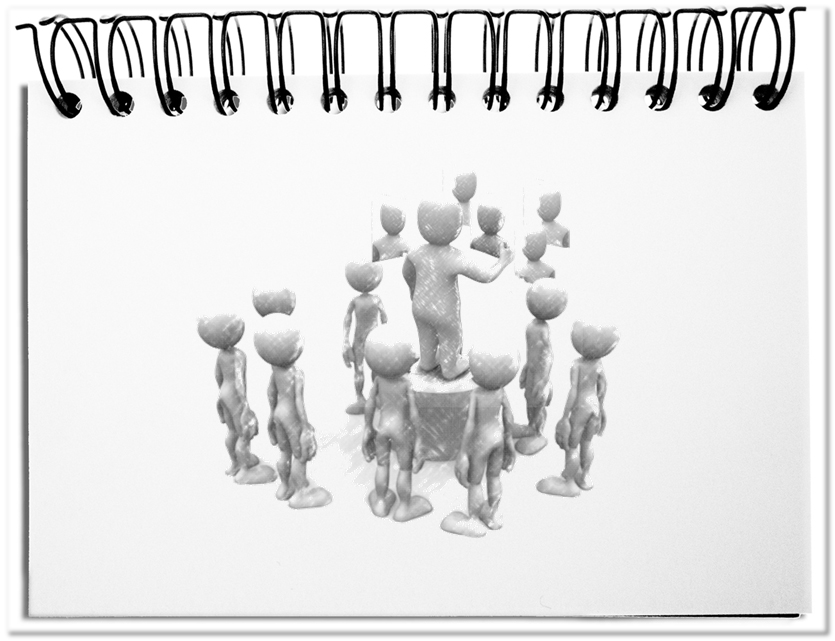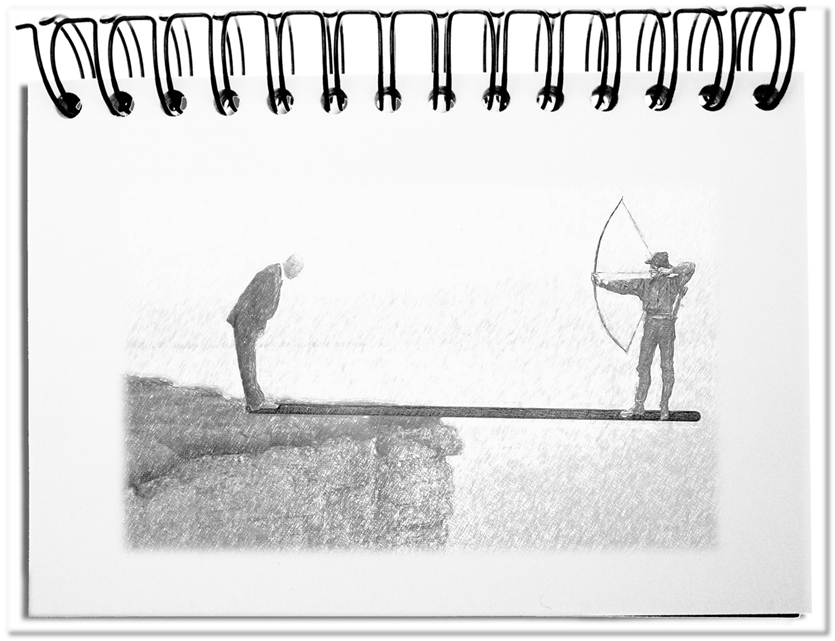Mythology has provided us the story of Narcissus, who was condemned in revenge for being insatiably in love with himself. One day he found a beautiful reflection in a lake and could not turn away without realizing that it was his own reflection. When a leaf rippled the smooth surface of the water, he suddenly recognized himself on the small waves and felt ugly and died. The fate of Narcissus to misperceive oneself and subsequently passing away is a warning example for leaders not to wreck oneself due to misperception of oneself.
The following points make it easier to recognize some wrong tracks.
- Want to do everything themselves
Surely it is not a disadvantage, if you are still able to do something yourself. This starts with the customer contact that you don’t want to lose, continues with the creation of a product and ends with the search for solutions. For a manager to do the tasks, it should know the business and be able to perform subtasks.
However, this does not mean that you do everything yourself and to interfere everywhere. After years, the originally accumulated knowledge no longer matches the current tasks, which does not stop those people from interfering and worsening the results. You avoid this wrong track by better concentrating on the tasks, solving problems for the employees and otherwise providing the freedom they need. - Ignore new things
Within the framework of leadership, it is advantageous to be interested in new things, actively finding new ways and promoting them. Long-standing bosses are burdened with experiences from the last millennium, what results in giving vague orders for new contents, because they have no idea of a contemporary solution.
However, this does not stop them from using their traditional knowledge to prevent or remove any innovative solution of their staff – be it, because they do not understand them or because they can only represent, what they know. The obvious way out is lifelong learning and a quota for introducing something new. - Hubris – overestimating oneself
Self-awareness requires repeated engagement with your own abilities, beliefs and mental models. You should be able to expect from those responsible people to regularly check themselves within the framework of self-management. Without the appropriate self-reflection, managers get stuck in a vicious circle.
As a result, these people overestimate their capabilities. They then fall into a bossy hubris that leaves the rest of the world no air to breathe. And eventually, dramatic wrong decisions are made from ignorance, which endanger the entire company. Executive coaching, tailored to the individual, offers the chance to become aware of your abilities and to select a turn away from the wrong track. - Lack of appreciation
With hubris comes disdain for customers, colleagues, employees and suppliers. Customers are defamed, simply because they don’t understand the solutions offered – even though we know that the worm must taste the fish, not the fisherman. Even inappropriate comments about colleagues in the management team make the lack of respect visible. Not to mention the image of the employees, who apparently do not understand what the boss wants and are not able to implement what is necessary. Eventually the suppliers are criticized, who do not deliver the quality that was expected.
This compulsion to blame everything on others is a clear wrong track, who threatens the company. Executive coaching gives the bosses the opportunity to rethink, adapt their behavior, and to find a better way for all. - Double binds
A particularly perfidious management style is shown by bosses, who assign a wide range of tasks and in the end do not appreciate the results achieved. They always pick holes in the lacking parts. If tasks A, B and C were determined as stretched goals and „only“ A and B are delivered, the complaint is that C is missing – if, on the other hand, A and C are delivered, the same applies to B, etc.
The so-called double bind, which, leads to a negative evaluation, no matter what you do, is a common means of toxic retention of power. Only a functioning, mixed management team that regulates itself offers a way out. - Unequal treatment
As a manager you have responsibilities and obligations towards ALL employees. This excludes the preference for individuals. This is aggravated by the fact that they are presented as a good example to the rest. This is particularly noticeable in badly prepared events, which are intended to improve the team spirit, but increase unnoticed the clique formation. If different measurements are applied, then at least half of the workforce has already been lost before the crisis.
The exclusion of employees leads to poor performance, internal dismissal and even sabotage. This can be controlled by introducing objective assessment criteria and making managers aware of their biases and possible paths. - Lies
Playing consciously with the truth is another sign of a destructive understanding of leadership This begins with a selective information policy that does not tell everyone the same thing. It becomes visible when information is subject to a duty of confidentiality. It escalates, when employees are played off against each other by providing negative information about colleagues or even openly spreading untruths about individuals. This is where toxic bosses become visible at the latest. When semi-official lies are constructed to hide one’s own wrongdoing.
A moderated cultural development that, above all, establishes the values in such a way that they apply to the employees AND the managers, offers a way out. The focus here is on all confidence-building measures regarding visible behavior and rituals, collective values and deeply rooted assumptions.
Bottom line: Although everyone is talking about the digital transformation, they are overlooking the fact that the business continues to rest on the shoulders of the employees. For this reason, it is a great risk to offend the executing people. They need a long time to become familiar with the business. In most cases, the frog is already boiling at 90 degrees without noticing. The above list helps to identify toxic ways at an early stage. The focus is on managers, who want to do everything themselves, ignore new things, suffer from overconfidence, do not value their environment, create dilemmas, treat employees unequally and preserve their power with lies. There are three resorts for the employees to resolve the situation: love it, change it or leave it. And exactly the third way threatens the company, because the commercial risk increases – especially in smaller companies. As soon as people have something better, they are gone and leave the company to its fate. Employees are not the problem, but those, who ruin cohesion and thus the company. Search with the above list for wrong tracks in order to avoid them and not to wreck your own company.


